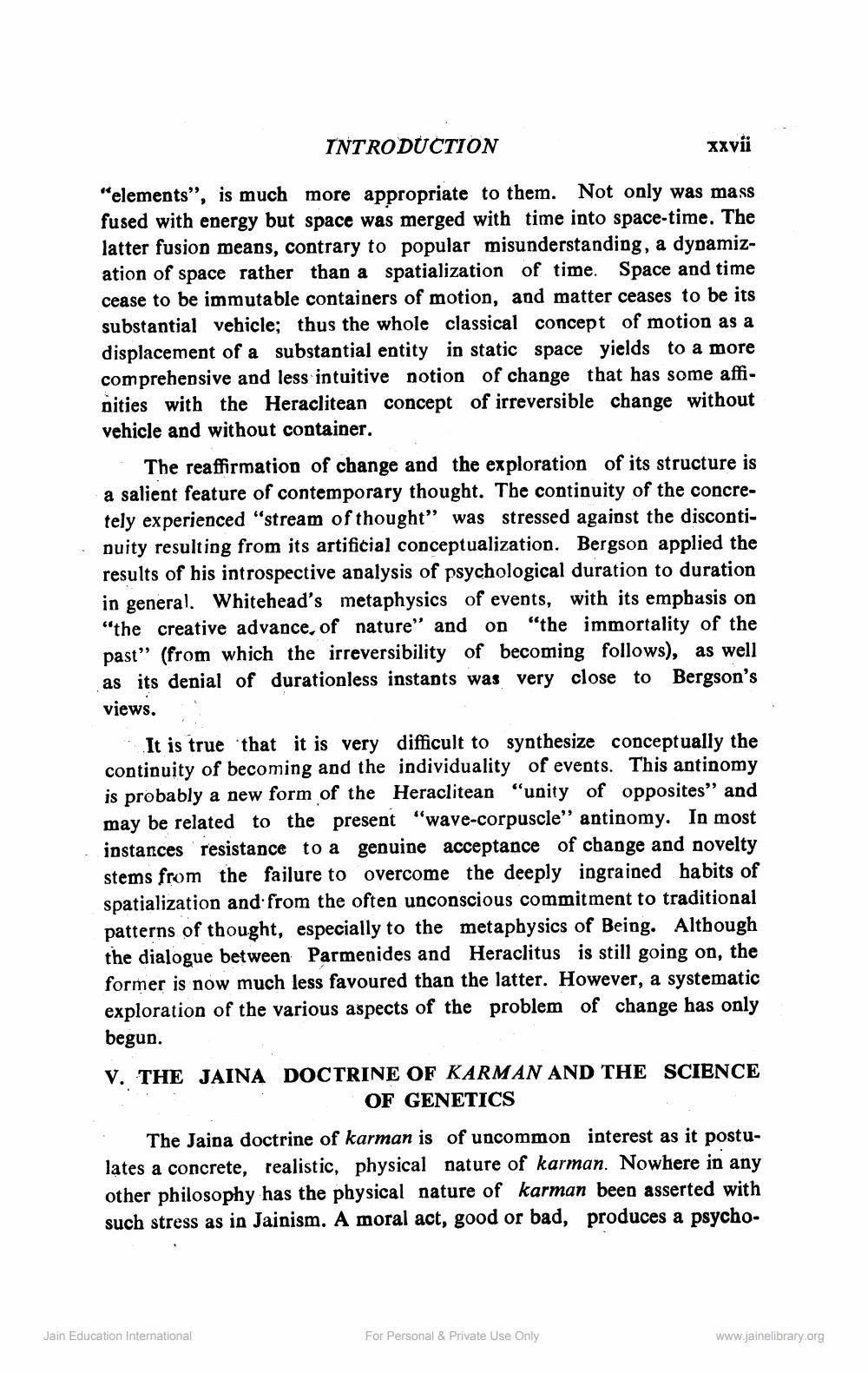________________
INTRODUCTION
xxvii
"elements”, is much more appropriate to them. Not only was mass fused with energy but space was merged with time into space-time. The latter fusion means, contrary to popular misunderstanding, a dynamization of space rather than a spatialization of time. Space and time cease to be immutable containers of motion, and matter ceases to be its substantial vehicle; thus the whole classical concept of motion as a displacement of a substantial entity in static space yields to a more comprehensive and less intuitive notion of change that has some affinities with the Heraclitean concept of irreversible change without vehicle and without container.
The reaffirmation of change and the exploration of its structure is a salient feature of contemporary thought. The continuity of the concretely experienced "stream of thought" was stressed against the discontinuity resulting from its artificial conceptualization. Bergson applied the results of his introspective analysis of psychological duration to duration in general. Whitehead's metaphysics of events, with its empbasis on “the creative advance, of nature" and on "the immortality of the past" (from which the irreversibility of becoming follows), as well as its denial of durationless instants was very close to Bergson's views.
It is true that it is very difficult to synthesize conceptually the continuity of becoming and the individuality of events. This antinomy is probably a new form of the Heraclitean "unity of opposites” and may be related to the present "wave-corpuscle” antinomy. In most instances resistance to a genuine acceptance of change and novelty stems from the failure to overcome the deeply ingrained habits of spatialization and from the often unconscious commitment to traditional patterns of thought, especially to the metaphysics of Being. Although the dialogue between Parmenides and Heraclitus is still going on, the former is now much less favoured than the latter. However, a systematic exploration of the various aspects of the problem of change has only begun. V. THE JAINA DOCTRINE OF KARMAN AND THE SCIENCE
OF GENETICS The Jaina doctrine of karman is of uncommon interest as it postulates a concrete, realistic, physical nature of karman. Nowhere in any other philosophy has the physical nature of karman been asserted with such stress as in Jainism. A moral act, good or bad, produces a psycho
Jain Education International
For Personal & Private Use Only
www.jainelibrary.org




